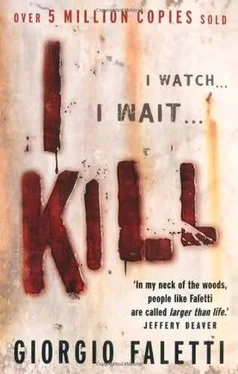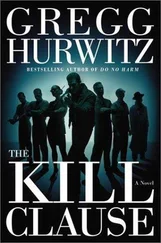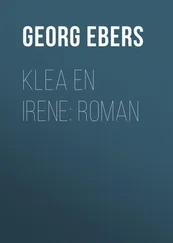Just then, the door opened and Morelli walked into the room. He stopped next to the door, speechless at finding Frank there. But then Frank noticed that Morelli wasn’t surprised, he was embarrassed. Frank felt slightly guilty at the sergeant’s discomfort.
‘Hi, Claude,’ he said. ‘Sorry I burst in, but there was nobody here and I had to check something out right away.’
‘Not a problem. If you’re looking for Inspector Hulot, he’s in the conference room downstairs. The bigwigs are there, too.’
Frank could smell something fishy. If it was a meeting to go over the investigation and coordinate things, it was strange that they hadn’t told him. He’d always been unobtrusive so as not to step on Hulot’s toes. He’d stayed a step behind and only taken the initiative when asked. He didn’t want to lower anyone’s opinion of the inspector, either that of his superiors or, more important, his subordinates.
Nicolas’s state of mind was another story. Frank had been struck by his outburst over Jean-Loup that morning, but it was perfectly understandable, from a personal and professional point of view. He and Hulot understood each other. They felt each other’s pain. There were no problems between them.
He compared that to the almost furtive visit from Dwight Bolton. The Principality authorities probably saw things the same way Bolton did, but from the opposite viewpoint. Now that the US government had intervened, Frank’s presence there was no longer a personal favour, a gentlemen’s agreement. It was official.
Frank shrugged. He had absolutely no intention of becoming mixed up in diplomatic relations. He didn’t give a damn. All he wanted to do was catch the killer, lock him in jail, and throw away the key. He didn’t care who took the credit.
‘I’m going downstairs. You coming?’ said Morelli, recovering from his earlier moment of awkwardness.
‘Think I should?’
‘I know they called you a couple of times but the line was busy.’
That was possible. He had been on the phone with Cooper for quite a while and had turned off his cell phone when Bolton arrived. He didn’t use it much anyway. It was almost always in a drawer in the apartment.
Frank got up from the desk, picked up the photos and removed the videotape from the VCR. He took them with him. ‘Can we look at this downstairs?’
‘We’ve got everything you need.’
They left the office and walked in silence down the stairs. Frank’s expression was hard as stone.
The large conference room was painted in two different shades of grey. There were a number of people sitting around a long, rectangular table. Nicolas Hulot, Dr Cluny, the Sûreté chief Roncaille and a couple of other people Frank didn’t know.
There was a moment of silence at his appearance and the fishy smell grew stronger. It was the classic pause of someone caught red-handed. Frank figured that this was their home and they had the right to have all the meetings they wanted, with or without him. But the tension confirmed his suspicions. Nicolas glanced around, embarrassed, unable to look him in the eye, just like Morelli a few minutes earlier. Hulot probably had other reasons as well. In Frank’s absence, he must have been soundly reprimanded for the negative results of the investigation so far.
Roncaille collected himself first. He stood up and took a few steps in Frank’s direction.
‘Ah, Frank, here you are. Come in and sit down. We were just doing a little summing up before you got here. I don’t think you know Alain Durand, the attorney general, who is personally involved in the case.’
He pointed to a short man with a few, sparse blonde curls and tiny, deep-set eyes behind rimless glasses, sitting at the head of the table. He was wearing an elegant grey suit that did not give him the air of importance he probably thought it did. Durand nodded slightly.
‘And Sergeant Gottet of the Computer Crime Unit…’
The man on Durand’s right nodded unmistakably. He was a young man, tanned with dark hair. He probably worked out in his spare time and lay on the beach all summer and a sunbed in the winter. He looked more like a yuppie than a cop.
Roncaille turned to the men he had just introduced. ‘This is Frank Ottobre, FBI special agent. He has joined the Principality police for the “No One” case.’
Frank went to sit down next to Dr Cluny on the left-hand side of the table, almost directly opposite Nicolas. He sought his gaze, but Nicolas continued to look somewhere under the table, as if he had lost something.
‘Okay,’ Roncaille said, returning to his seat, ‘I think we can go on now. Frank, we were about to hear Dr Cluny’s report on the tapes.’
Now it was Frank who nodded silently. Cluny pushed his chair closer to the table and opened his file of notes.
‘After analysing the tapes more closely than I could during the radio show,’ the psychiatrist began, ‘I have reached more or less the same conclusions. The subject is extremely complex, a type that I must say I have never encountered before. There are some details in his modus operandi that are totally in keeping with most case histories of serial killers. The single territory, for example. He only operates in the Principality. The fact that he always uses knives, which allow him direct contact with the victim. Moreover, the fact that he removes the skin can be seen as both a ritual fetish and, literally, as overkill. By mutilating the corpse, the killer demonstrates his total control over the person he attacks. Even the quiet period between one murder and the next is part of the general scheme. So, up to here, it all seems normal…’
‘But?’ asked Durand, with a deep voice that was disproportionate to his size.
Cluny paused for effect. He removed his glasses and rubbed the base of his nose, something Frank had noticed before. Cluny seemed to have a special ability to keep a crowd’s attention. He replaced his glasses and nodded at Durand.
‘That’s right. Here’s where the “buts” begin. The subject has enormous verbal agility and a capacity for abstraction that is absolutely remarkable, unique in my experience. His definition of himself as “someone and no one” is an excellent example. His imagery is even poetic at times, despite the bitterness. Aside from being highly intelligent, he must have an exceptional cultural background. University studies, the humanities, I’d say. That’s different from the average serial killer, who is usually lower class with little culture or education. They almost always have a very low intelligence quotient. There’s one thing in particular that puzzles me…’
Another pause. Frank watched the psychiatrist repeat the pantomime with his glasses and the nose rubbing. Durand cleaned his own glasses in the meantime.
A round of applause, Cluny. Great. We’re all ears but go on. And get yourself some contact lenses, won’t you?
‘The fact that there seems to be a compulsion towards the crime, the murder, during the conversation. Common personal experiences in subjects like this – an oppressive family, a domineering parent or parents, abuse or humiliation and so on – are fairly normal. But there is an attitude that we usually find in cases of split personality, as if the subject were two people at once. Which brings us back to the “someone and no one” mentioned earlier…’
To Frank, this was total bullshit. An exercise in style, nothing more. In this particular case, tracing the killer’s psychological profile might be helpful but would not determine anything. The killer was not only a man who took action; he was a thinking man, and he thought a great deal before acting. His thinking was exceptional, and if they wanted to catch him, they had to get beyond his capacity for lucid thought. Frank avoided saying so, however, because he didn’t want his opinion to be mistaken for admiration of the killer.
Читать дальше










